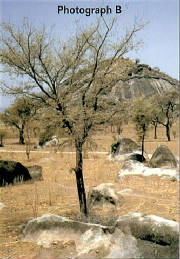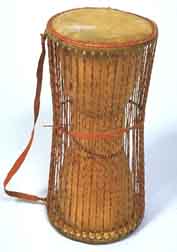|
Physical Environment:
Much of Northern Nigeria is high, flat plains. The Jos plateau rises above all of the plains
in the Northern Region of Nigeria. Lake Chad is a very important source of water in this region, although it is shrinking
in size. A powerful wind, the harmattan, blows South from the Sahara between October and March, covering everything
with sand.

|
| Plains of Northern Nigeria |
Ethnic Groups:
The biggest ethnic groups in Northern Nigeria are the Hausa
and Fulani. The Hausa are more urban, while the Fulani still live in rural areas. Both groups, however, are Muslim. Over time,
the groups married and created a connected culture. One-third of Nigerians speak Hausa, while the Fulani speak Fulfulde.
Culture:
Because of the hot climate in Northern Nigeria, many houses have flat rooves to sleep on at
night. Some house also are made of mud and palm leaves or reeds. The people in Northern Nigeria favor loose clothing that
protects them from the sun. Women wear robes that cover their whole body, and some wear a headdress. The traditional instrument
is the Tension Drum.

|
| Tension Drum |
Economy:
Many people in Northern Nigeria make their living as farmers and herders. Hausa farmers grow
corn and a grain called millet. They eat some of their crops and then sell the rest. Fulani herders sell milk and milk products
like butter. They rarely kill cows to eat. The Hausa make cloth and leather goods. Some of them are traders.
|

